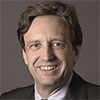Bending to the Modern World
J.P. Morgan rose to influence in an era when the accumulation of great wealth began to astound the ordinary man.
As Nassim Nicholas Taleb observed in his book, The Black Swan, life is unfair, a theme the economist Sherwin Rosen, author of studies about the economics of superstars, develops as credited by Taleb.
Rosen bemoans the high salaries of basketball stars and TV personalities, which he attributes to the “tournament effect,” wherein someone who is marginally better can win the whole pot, leaving others with nothing. Taleb reminds us how this is so: We would rather buy a recording featuring the renowned Vladimir Horowitz for $10.99 than pay $9.99 for one of a struggling pianist.
However, ordinary men through democracy can band together to not only ostracize the J.P. Morgans from the village, but to strip them of tournament winnings.
Just as important, they can redistribute them to those who struggle in the $9.99 bin. On the other hand, in the world of credit, democracy is a stranger. Should the rules be short circuited, wealth need not participate.
Share prices for implicitly government-backed mortgage agencies can plunge from $60 to less than $1 in months. The Soviet Union learned this the hard way.
Europe’s unemployment rate during the boom times prior to 2008 stood at its 1932 depression level, its countries having not created more than a few million jobs in the last three decades. Yet somehow many think its system is still functioning relatively well.
By 1913, when J.P. Morgan appeared in the Pujo hearings, the era of lending money based upon character was beginning to have this determinant completely removed from the process, and the pendulum would shift 100 years later toward the ordinary man collectively mandating loans for everyone, eventually without even documentation or down payment.
Or worse, smothering documentation would lend an air of legitimacy. Loans would be sliced and diced for general consumption, surrounded by the safety of telephone-book-sized prospectuses, overseen by thousands of regulations, and monitored by intricate risk models, none of which could put Humpty Dumpty back together.
In the era leading up to Morgan, when character was put foremost, America had seen small percentages of banks fail in great panics, only to have most of their assets recover in value when liquidity returned.
Now, thanks to modern practices, great numbers of giant-sized financial institutions have essentially failed. They must be kept on life support; because their assets are so tainted they may never recover in value.
Regards,
Bill Baker,
for The Daily Reckoning
[Editor’s note: This passage is reprinted from William W. Baker’s book, Endless Money: The Moral Hazards of Socialism, with the permission of John Wiley & Sons, Inc (©2010). You can get your own copy here.]


Comments: